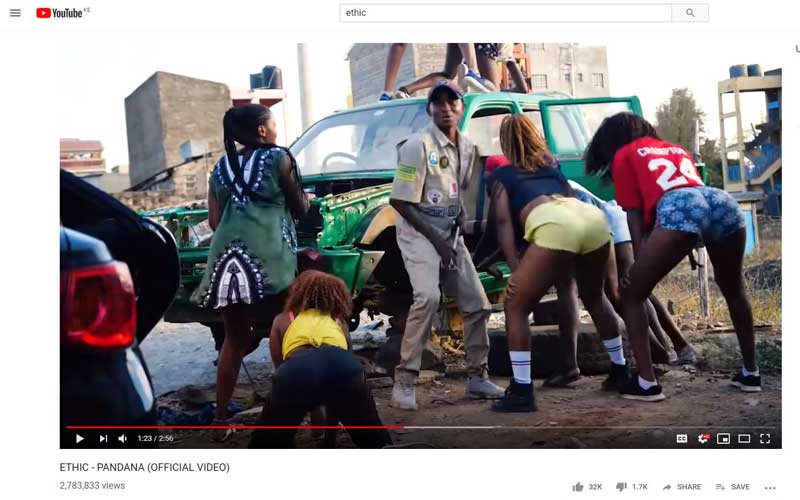
At some point in time, you have heard the chant that has taken over the streets, “Wamlambez” and the response “Wamnyonyez”.
While the two words are significantly bordering on the obscene, they go to show just how far popular culture is evolving and how what could otherwise be considered profane can be accepted as part of everyday life.
However, with the fast pace in the entertainment industry, it is expected that the catch words of today will be forgotten pretty soon – tomorrow maybe.
If you walk around and ask any young person what the song is all about, you will most likely be met with a grin and blush if not with a chuckle and condemnation, depending on the person’s affiliation and worldview.
But maybe to understand this, take a quick look at the ‘trendy’ names that today’s young singers have christened themselves. “Wamlambez Wamnyonyez” is a collaborative effort among four young men – Miracle Boy, Shalkido, Lexxy Yung and Qoqosjuma. Suppose they used their real names in the music would they still be as popular?
Unlike Tanzania music where lots of euphemism is used to mask vulgar language, the Kenyan upcoming generation seems to have taken to modulation of language to suit their audience.
In their other song, “Pekejeng”, the connotative video is what sells out the song as bordering on profanity. Also, getting hype among the youth is Zzero Sufuri’s “Zimenishika”, which seems to glorify smoking among young people.
Another group that is sending shock-waves across the urban young is Ethic. Bursting on the stage with a single, “Lamba Lolo”, which became an instant hit, drawing memes and short videos with the chorus the group gained prominence among the urban young. The group has gone on to release another song, “Pandana”, which also rides on the same pop culture in which meaning is hidden and left for just a certain generation.
They have gone ahead to do collaborative efforts with more established musicians like Otile Brown and the Kansoul.
Rev Ken Aringo, an ACK priest Nairobi Diocese, says it is a clear result of desensitisation among people. “If a person loves a dirty place and is moved to a clean place, then they are most likely to complain and that is what is happening now,” he says.
Listening to the music lyrics over and over again, Aringo argues, has made people start becoming tolerant to the words which may not outright be acceptable.
But Dr Tom Odhiambo, a literature lecturer at the University of Nairobi, counters the view that society is stretching its boundaries beyond limits. He questions what is strange about the music now that has never been. “People always do these things and for every rap song from the US being played in Kenya there are censured words which people do not listen to but when you go to YouTube you will listen to them,” says Odhiambo.
 The Standard Group Plc is a multi-media organization with investments in media
platforms spanning newspaper print
operations, television, radio broadcasting, digital and online services. The
Standard Group is recognized as a
leading multi-media house in Kenya with a key influence in matters of national and
international interest.
The Standard Group Plc is a multi-media organization with investments in media
platforms spanning newspaper print
operations, television, radio broadcasting, digital and online services. The
Standard Group is recognized as a
leading multi-media house in Kenya with a key influence in matters of national and
international interest.



